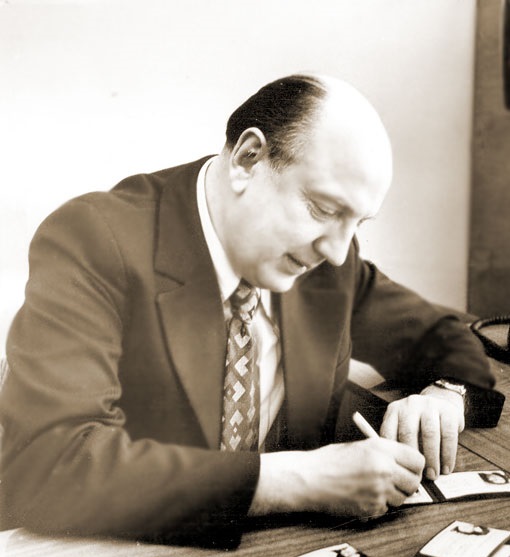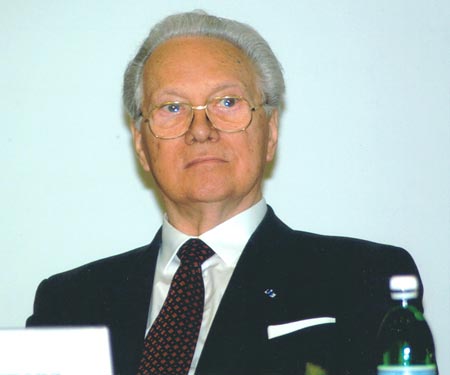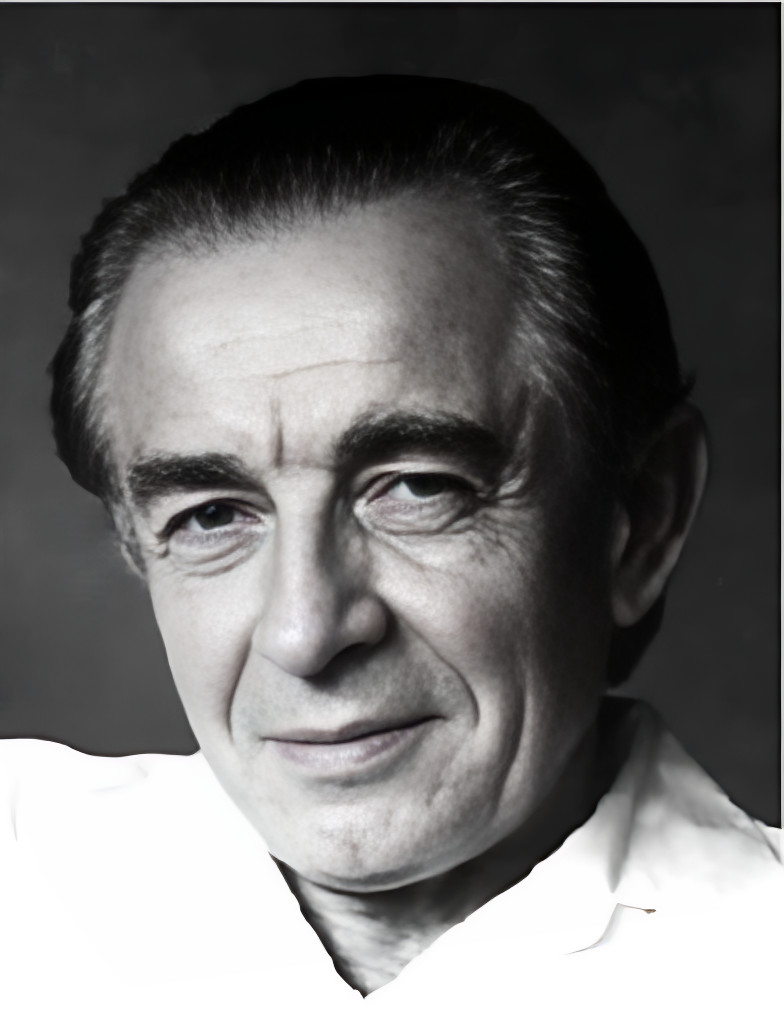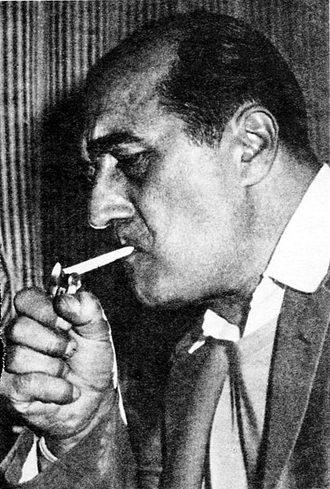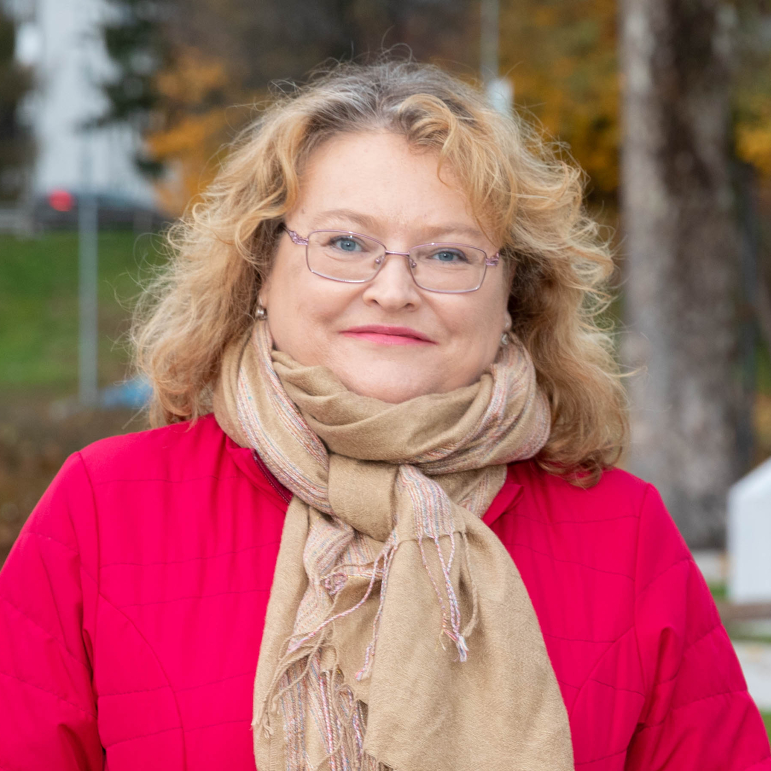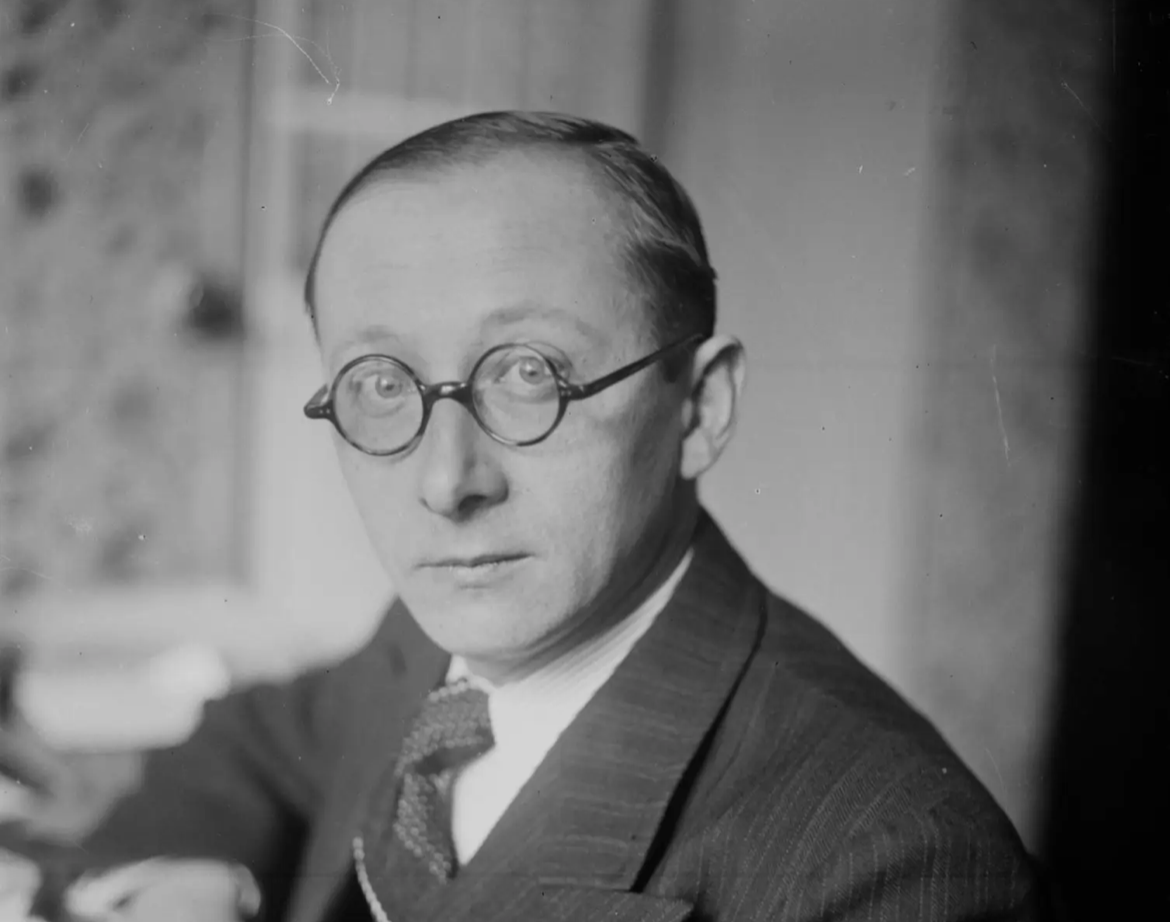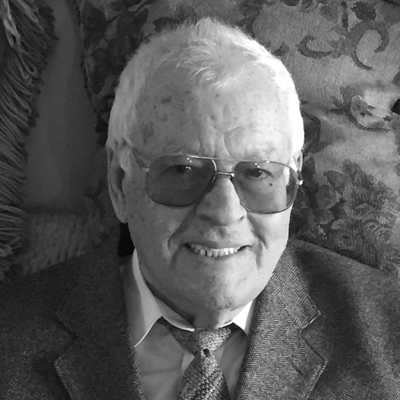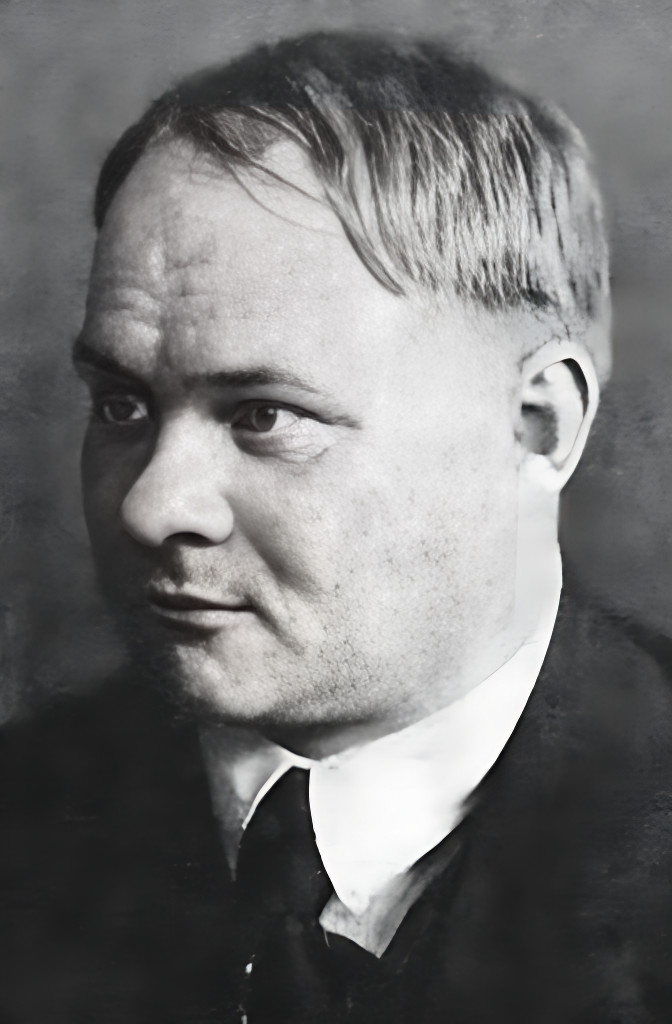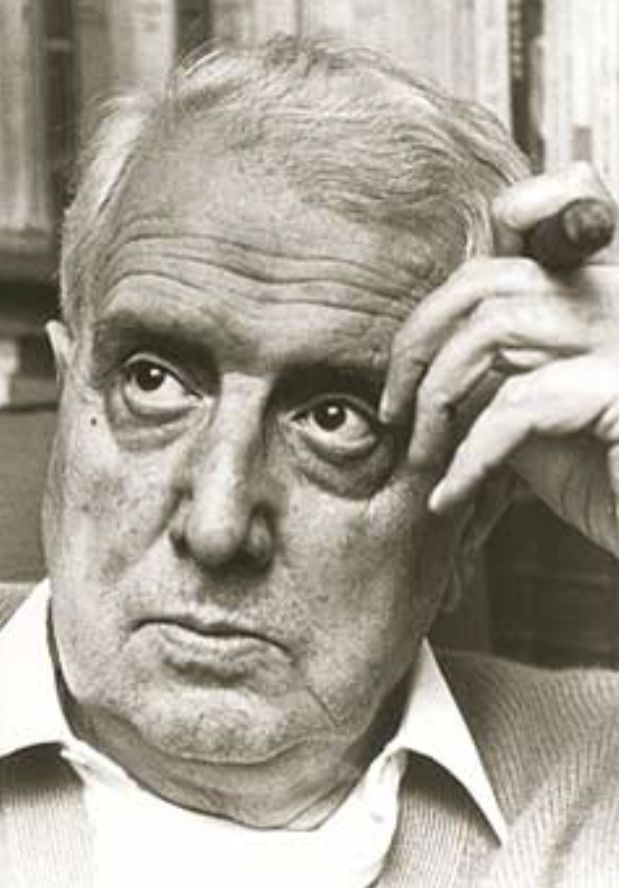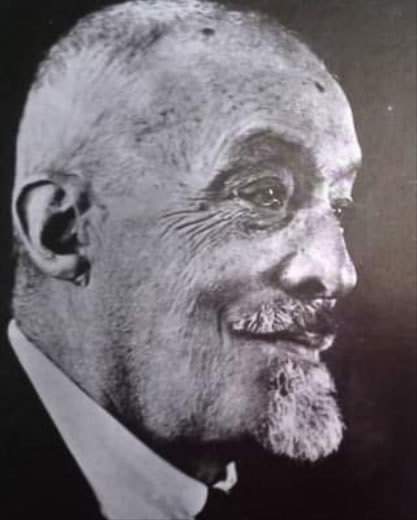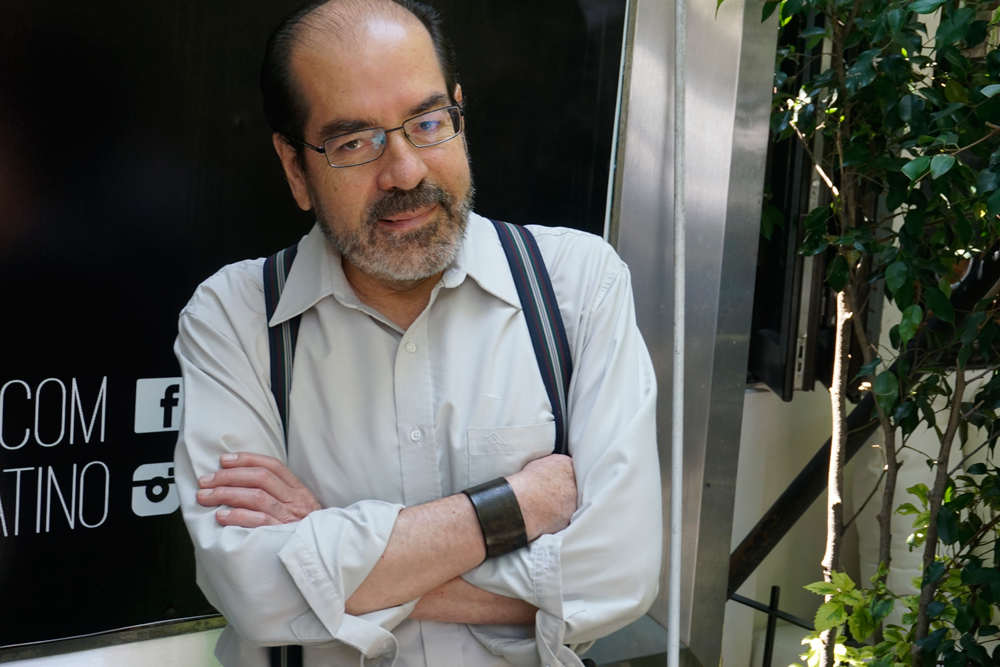Venedikt Stepanovich Vinogradov, or Виноградов В. (July 11, 1925 – August 15, 2009) was a prose writer, university professor, and renowned translator of Spanish-language literature into Russian. In his lifetime, he published more than 100 scientific papers and about 30 literary translations of novels, short stories and collections of short stories by Latin American and Spanish authors. The total circulation of these publications exceeds 2 million copies. In 1976, Vinogradov translated Ecuador’s most famous novel, “Huasipungo” by Jorge Icaza into Russian as “Уасипунго.” In Russian, Jorge Icaza’s name is spelled Хорхе Икаса.
Continue reading “Venedikt Vinogradov”Category: Translators
Giuseppe Bellini
Giuseppe Bellini (Isorella, October 23, 1923 – Milan June 19, 2016) was an Italian writer, literary critic, translator, university professor, and a leading Hispanist. He was a pioneer in Hispanic American literature studies in Italy and taught at a number of institutions, including: Bocconi University, University of Parma, University of Venice, and University of Milan. In 1961, Bellini translated his first work of prose, “Huasipungo,” a famous Ecuadorian novel originally written by Jorge Icaza in 1934. Over the course of his career, Bellini translated 81 works, wrote 69 volumes of literary criticism, and wrote over 500 essays and reviews. Bellini also translated works by Ciro Alegría, Pablo Neruda, and Miguel Ángel Asturias, among other Latin American authors.
moreTadeusz Jakubowicz
Tadeusz Jakubowicz (1887-1985) was a Polish translator who translated works from English, Russian, French, Italian, and Spanish into Polish. In 1950, he translated the famous Ecuadorian novel “Huasipungo” by Jorge Icaza from Spanish to Polish as “Dławiące dzierżawy.” Among other authors whose works he translated are: Alexandre Dumas, Gustav Flaubert, John Dos Passos, and John Galsworthy.
Věra Prokopová
Věra Prokopová (May 1903 – October 28, 1985) was a Czech translator who translated from the French, Russian and Spanish languages into Czech. In 1963, she translated the Ecuadorian novel “El chulla Romero y Flores” into Czech as “Chlapík z Quita,” (literally, The Lad from Quito). Her translation of Icaza’s work (with an afterword) was published in 1963 by SNKLU (Státní nakladatelství krásné literatury a umění). Adolf Born designed the book’s dust jacket.
Continue reading “Věra Prokopová”Vlaicu Bârna
Vlaicu Bârna (1913 – 1999) was an award-wining Austro-Hungarian-born Romanian poet. In 1965 he made a Romanian translation of the Ecuadorian novel “Huairapamuchcas” by Jorge Icaza as “Copiii vîntului,” (literally, “Children of the Wind”). Other authors he translated include Adam Mickiewicz, Heinrich Heine and Victor Hugo. He won the Ion Pavelescu Prize for sonnets in 1934 and the Romanian Academy’s Mihai Eminescu Prize in 1977. He wrote two historical novels for young people: Romanul Caterinei Varga (1961) and Când era Horia împărat (1962).
Continue reading “Vlaicu Bârna”Mervyn Savill
Mervyn Savill was a British translator, writer, and editor. During his most productive period (from the 1940s to the 1960s), he translated more than 100 books for various publishers into English from German, French, Italian, Swedish, Danish, Norwegian, and Spanish. Savill translated the famous Ecuadorian novel “Huasipungo” by Jorge Icaza into English in 1952, and it was published in 1962 by Dennis Dobson Ltd, London. His translation was based on the original 1934 publication of the book. His other accomplishments as a translator include being the first to bring German Nobel laureates Herman Hesse and Heinrich Böll to the English public.
Continue reading “Mervyn Savill”József Füsi
József Füsi, born József Horváth (Hajmáskér, April 2, 1909 – Budapest, August 10, 1960) was a Hungarian writer, playwright, literary translator, and teacher. In 1949, he translated the novel “Huasipungo,” by Ecuador’s Jorge Icaza into Hungarian as “Indián átok” (literally, Indian Curse). For ten years from 1935, he was a teacher at the capital’s Italian secondary school, and until 1947, acting director. After that, he was acting director of the Vígszínház for a year, as well as dramaturg-lecturer. Between 1954 and 1957 he was a member of the military writing group. His plays appeared on the radio in the 1950’s. His most notable translations include Giovanni Boccaccio’s Life of Dante and Benvenuto Cellini’s Autobiography.
Continue reading “József Füsi”Tibor Kobáň
Tibor Kobáň (1912-1996) was a Spanish-to-Slovak translator who in 1963 translated “En las calles,” a novel by Ecuador’s Jorge Icaza, as “Na uliciach” (literally, On The Streets). Self taught in Spanish and a lover of literature in Romance languages, in 1948 Kobáň created the first Spanish-to-Slovak translations of Latin American works. They were the novels “Miércoles santo” [Defilé hriechu] and “La noche toca a su fin” [Noc už pominula] by Manuel Gálvez and “El camino de las llamas” [Cesta lám] by Hugo Wast, well-known Argentinian writers of that time.
Continue reading “Tibor Kobáň”Barbara Pregelj
Barbara Pregelj (April 12, 1970) is a Slovenian writer, editor, scholar of Spanish-language literature, researcher, translator, cultural promoter, and university professor. She’s the author of more than 20 scientific articles and 2 books, and has also translated over 40 books from Spanish to Slovenian. In 2001 she translated the Ecuadorian novel, “Huairapamuchcas,” by Jorge Icaza into Slovenian as “Huairapamuške: sinovi vetra” She has organized and coordinated many visits by foreign authors in Slovenia, along with visits by Slovenian authors to Spain, and several international symposia. She regularly presents papers at conferences, symposia and roundtables, both in Slovenia and abroad.
Continue reading “Barbara Pregelj”Georges Pillement
Georges Pillement (March 23, 1898 — April, 14 1984) was a French writer, translator, Spanish and Hispano-American literature scholar, author of books on art and tourism, and photographer. In 1938, he translated “Huasipungo,” Ecuador’s most famous novel (written in 1934 by Jorge Icaza) into French as “La Fosse aux Indiens” (literally, The Indian Pit). It was the first time “Huasipungo” was translated into another language (it was eventually translated into over 40 languages by other translators, including Russian, Chinese, and English). Moreover, in 1945 he published a French anthology of Ecuadorian short stories entitled “Gens de l’Equateur,” which contained stories by José de la Cuadra, Gil Gilbert, Jorge Icaza, Gallegos Lara, A. Malta, H. Salvador. In his illustrious career, Georges Pillement won the Prix des Deux Magots for his novel “Plaisir d’amour” in 1937, and the French Academy’s Prix Louis Barthou in 1964 and the Prix Georges Dupau in 1975.
Continue reading “Georges Pillement”Vadim Khazin (Вадим Хазін)
Vadim Khazin, or Вадим Хазін (Kyiv, Ukraine, April 2, 1937) is a Ukrainian translator and a geologist (PhD) who has lived in the United States since 1992. In 1967, he translated Jorge Icaza’s novel “El Chulla Romero y Flores” into Ukrainian as “Лихі пригоди Ромеро-і-Флореса” [literally, The Misadventures of Romero y Flores]. He knows various languages and has translated several works from English, Spanish, Italian and Polish to Ukrainian. He is a certified member of the American Association of Translators, where he initiated the creation of the English-Ukrainian certification of translators and until 2016 headed the relevant section of examiners. Now he heads the English-Russian certification section. He lives and works in New Jersey, USA.
Continue reading “Vadim Khazin (Вадим Хазін)”Paul Zech
Paul Zech (February 19, 1881 — September 7, 1946) was a German Expressionist writer of the first half of the twentieth century. His German translation of Jorge Icaza’s famous novel “Huasipungo” was published after his death in 1952 as “Huasi-Pungo. Ruf der Indios,” (literally, Huasipungo. Cry of the Indians). Zech’s prolific literary output included essays, poetry, plays, and translation. In 1933, having garnered criticism and opposition from Germany’s far-right, he emigrated to Buenos Aires, Argentina in the fall of 1933, where he remained in exile from the Nazis until his death in 1946. Known primarily for his translations of classic French works, almost all of his longer works, including seven novels, remained unpublished during his lifetime. These posthumous works were instrumental in finally bringing him the recognition he so richly deserved.
Continue reading “Paul Zech”Carlo Bo
Carlo Bo (Sestri Levante, Italy, January 25, 1911 – Genoa, July 21, 2001) was an Italian poet, literary critic, translator, and professor, as well as a Lifetime senator of Italy (since 1984). In 1949, Bo translated the Ecuadorian novel “Cholos” by Jorge Icaza into Italian as “I meticci,” (literally, The Mestizos). In an article titled “Calvino, Pavese, Icaza” published in La Hora newspaper in 2010, María Helena Barrera-Agarwal, wrote this about Bo: “He was a polyglot and man of extraordinary erudition, whose talent was perfectly reflected in the way in which he rendered Icaza’s work into Italian: his version, clean and true, retains the novel’s original qualities.” Among the other Spanish-language authors B0 translated into Italian are: Venezuela’s Rómulo Gallegos, Argentina’s Ricardo Güiraldes, and Spain’s Federico García Lorca and Miguel de Unamuno. Bo served as rector of the University of Urbino for over 50 years (from 1947 until his death in 2001 at the age of 90).
Continue reading “Carlo Bo”Augusto N. Martínez
Augusto Nicolás Martínez Holguín, aka Augusto N. Martínez (Ambato, March 25, 1860 – March 19, 1946) was an Ecuadorian volcanologist, geologist, agronomist, scientific explorer, historian, writer, translator, and educator. His works contributed to the geological knowledge of the volcanic region in Ecuador. They include: “Crónica de los fenomenos volcánicos y terremotos en el Ecuador” [Chronicle of the Volcanic Phenomena and Earthquakes in Ecuador] (1896), “Algunas montañas volcánicas” [Some Volcanic Mountains] (1905), and “Vulcanologia y geología de los Andes ecuatorianos” [Volcanology and Geology of the Ecuadorian Andes] (1905). He also left a great legacy of photographs of the volcanoes he visited, which later were a great help to other climbers. His other works include themes such as science, history, scientific research, and exploration. He was a corresponding member of the National Academy of History, the Deutsche Gesellschaft für Geowissenschaften [German Geological Society], and the Société astronomique de France [French Astronomical Society]. He was fluent in English, French, and German, as well as his native Spanish. He translated several works from German and French into Spanish, particularly the valuable writings of his mentor Father Luis Dressel, with whom he ascended to some mountains and volcanoes in Ecuador. In 1920, he was honored by the French Academy of Sciences for his work.
Continue reading “Augusto N. Martínez”Vladimiro Rivas
Vladimiro Rivas Iturralde (Latacunga, June 5, 1944) is an Ecuadorian novelist, short story writer, biographer, opera critic, essayist, editor, translator, and award-winning university professor. He has been a resident of Mexico since 1973 and also holds Mexican citizenship. Since its establishment in 1974, he has been a professor at the Azcapotzalco Metropolitan Autonomous University in Mexico City. He has produced eight collections of short stories, two novels, and five nonfiction books. Some of his work has been translated to English, French, German, Italian, Portuguese and Bulgarian. He has also been the editor of anthologies of Ecuadorian writers, such as the acclaimed “Cuento ecuatoriano contemporáneo,” which was released in Mexico in 2001 and promptly translated into English as “Contemporary Ecuadorian Short Stories” in 2002.
Continue reading “Vladimiro Rivas”
